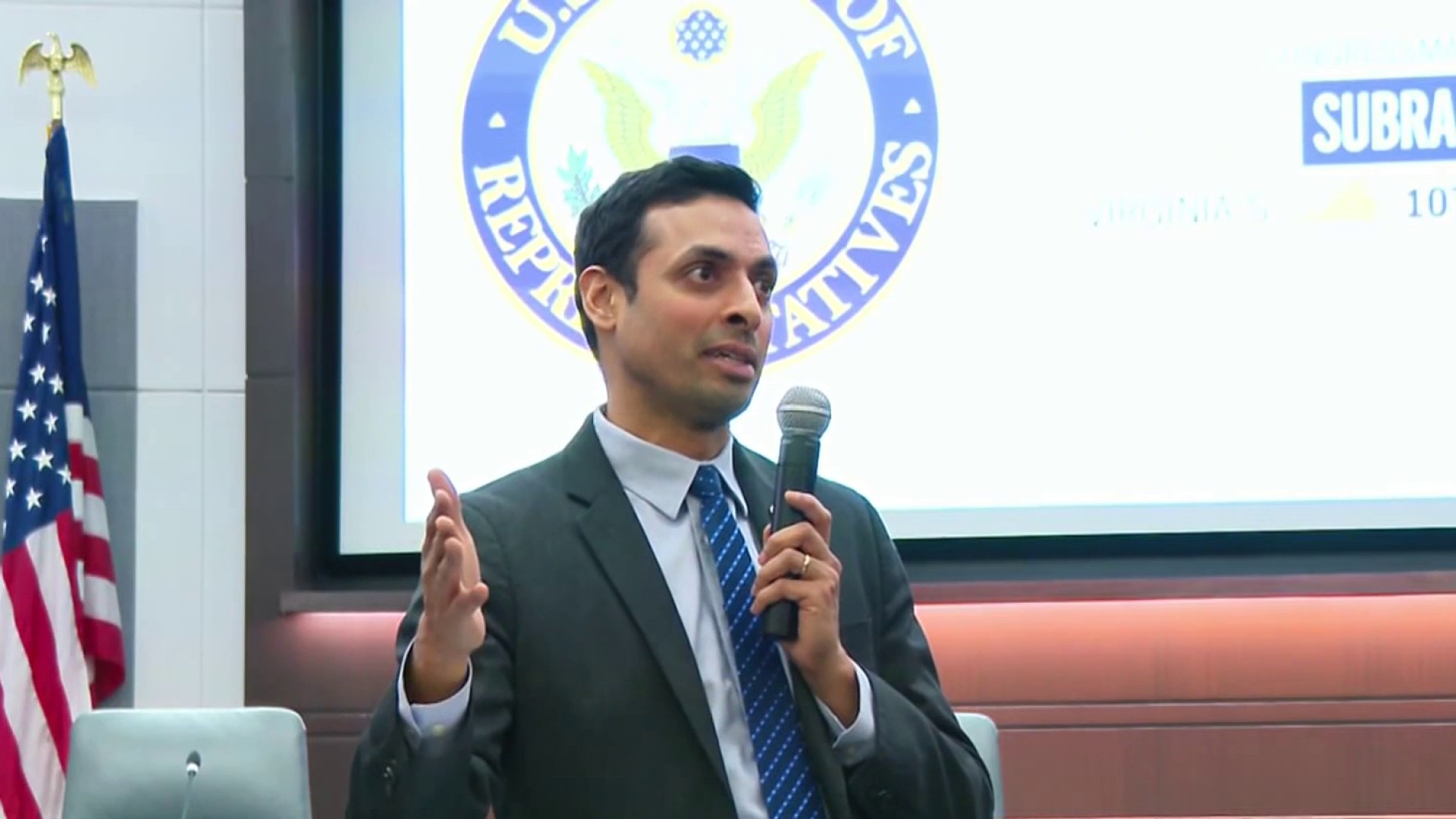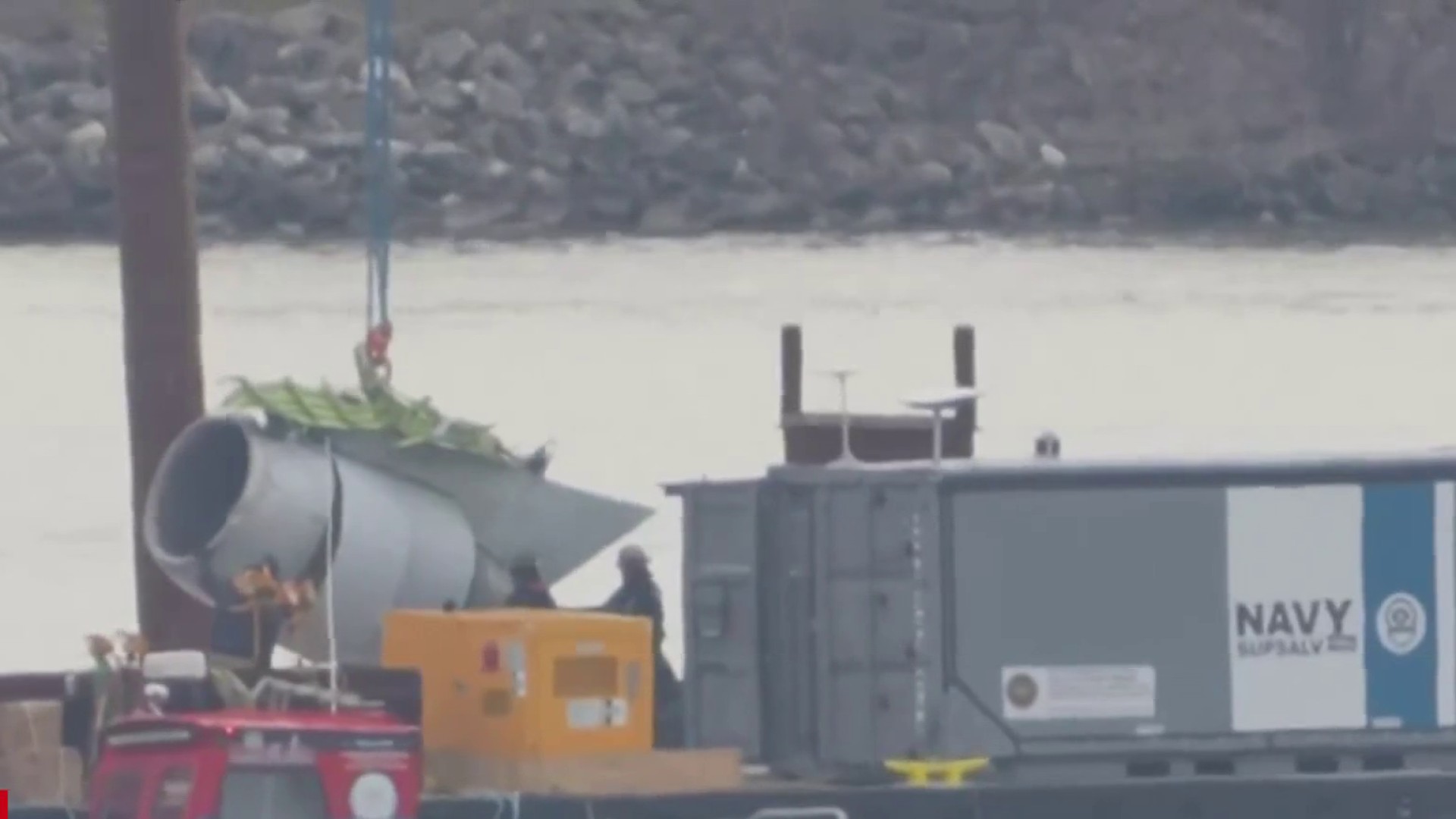With science showing more risk for coronavirus exposure indoors, industries are scrambling to figure out how to make customers feel safe enough to return. One technology now in high demand is ultraviolet light. Investigative Reporter Jodie Fleischer reports on a local company’s role in proving it works and the local places where it’s already in use.
From trains, planes and buses to escalator handrails and elevator buttons, the air we breathe and surfaces we touch are now being cleaned at the speed of light.
With science showing we're more at risk for coronavirus exposure indoors, industries are scrambling to figure out how to make customers feel safe enough to return. Ultraviolet light devices are seeing increased demand for disinfection.
"Every device we've tested has had a nice, solid impact on the virus," said Matthew Hardwick, founder and CEO of ResInnova Laboratories in Silver Spring, Maryland.
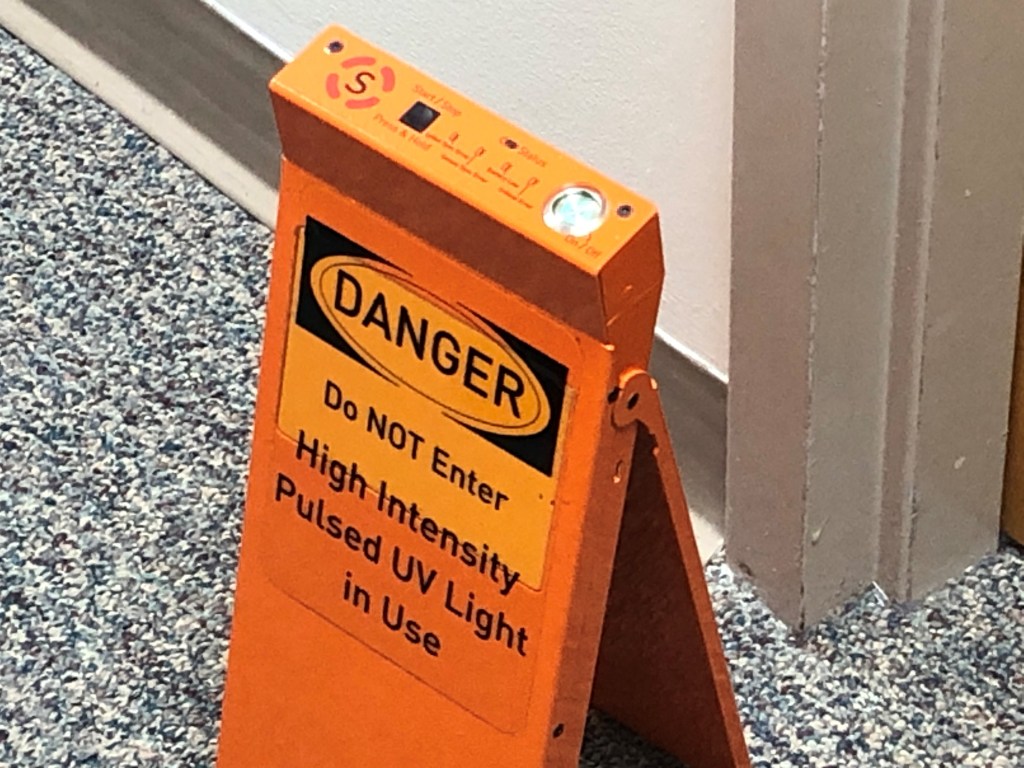
The lab specializes in testing ultraviolet light devices for the companies that make them, to document how well they work. He demonstrated several for the News4 I-Team, within a special room set up to safely use and monitor the technology, while preventing exposure, which can damage human eyes and skin.
"We put that room together in order to test these whole room devices in their natural environment," said Hardwick.
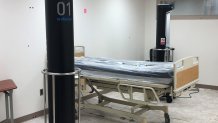
"Whole room" meaning you turn it on, leave the room, and within minutes, the light can kill bacteria and viruses on any surface it can reach.
Local
Washington, D.C., Maryland and Virginia local news, events and information
They use live samples of a coronavirus-cousin that mimics COVID-19 since vaccine research gets priority for samples of the real thing. Hardwick says when placed around his special test room, ultraviolet light has proven to eliminate 99.99 percent of the virus.
We've got the news you need to know to start your day. Sign up for the First & 4Most morning newsletter — delivered to your inbox daily. Sign up here.
"It disrupts the molecules of the virus," said Hardwick.
And now it's disrupting even more than that. The cleaning industry is exploring ways to harness the technology as a new tool for reopening businesses.
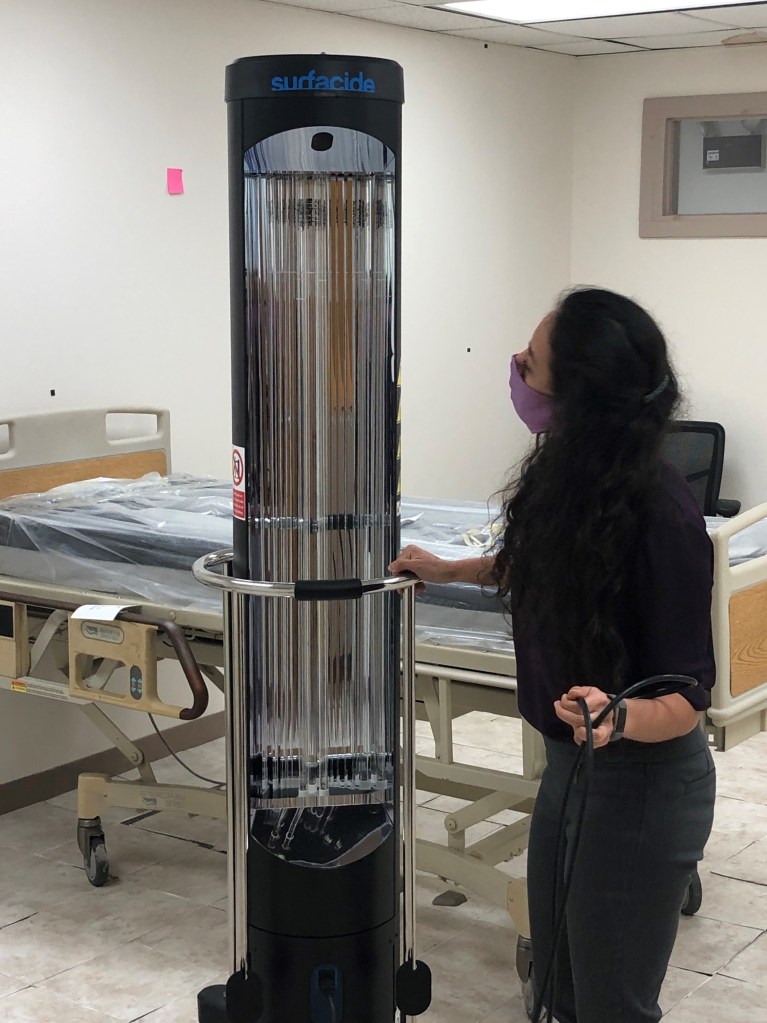
“I don’t want to put my staff at risk, I don’t want to put my patients at risk,” said Julio Hernandez, a Miami-area dentist who installed UV technology to clean his office and dental instruments within minutes.
Silver Diner recently spent about $500,000 to install ultraviolet lights within the HVAC systems of 20 restaurants throughout the D.C. metro area.
"It's costly, but I think everyone will do it because it's less costly than not having guests in your restaurants," said restaurant co-founder and Executive Chef Ype Von Hengst.
They're also using handheld sterilizers for high-touch surfaces and bathing the entire restaurant interiors in ultraviolet light each night once customers are gone.
"What we're setting the trend of might be something that's going to be a requirement for all restaurants in the future," Von Hengst said.
UV light technology has been disinfecting hospitals for decades, but design limitations prevented widespread use.
New research shows the coronavirus can survive for 28 days on some surfaces like glass, stainless steel and money. So, ultraviolet light disinfection technology can be useful in building customer and employee confidence to return to the office, the gym or to traveling.
A California company has created a mobile device with special arms that extend outward with angled UV lamps to remove shadows for better coverage. JetBlue bought one and is already advertising its ability to clean seats, seatbelts and tray tables on planes.
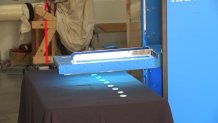
"That really put us on the map as far as UV-C products go," said Elliot Keritenberg, co-founder and president of Dimer, LLC.
Kreitenberg says in 2019, he couldn't find enough investors to mass produce the machines. Now, he can't build them fast enough.
"Really the applications for this product are limitless," Kreitenberg said. "And we expect that they're going to be out there in a big way before the end of this year."
And what about before you get on the plane?
Reagan National Airport just installed ultraviolet light technology on one of its escalator handrails and is researching it for potential future use in its HVAC systems.
D.C. Metro is also using UV light to disinfect escalators — that started before COVID-19 — thinking clean handrails might encourage riders to actually use them.
"Hey, there's a lot of smart people out there thinking of ways to make people feel safer and for it to be safer. So, we want to keep exploring those," said Paul Wiedefeld, general manager of the Washington Metropolitan Area Transit Authority.
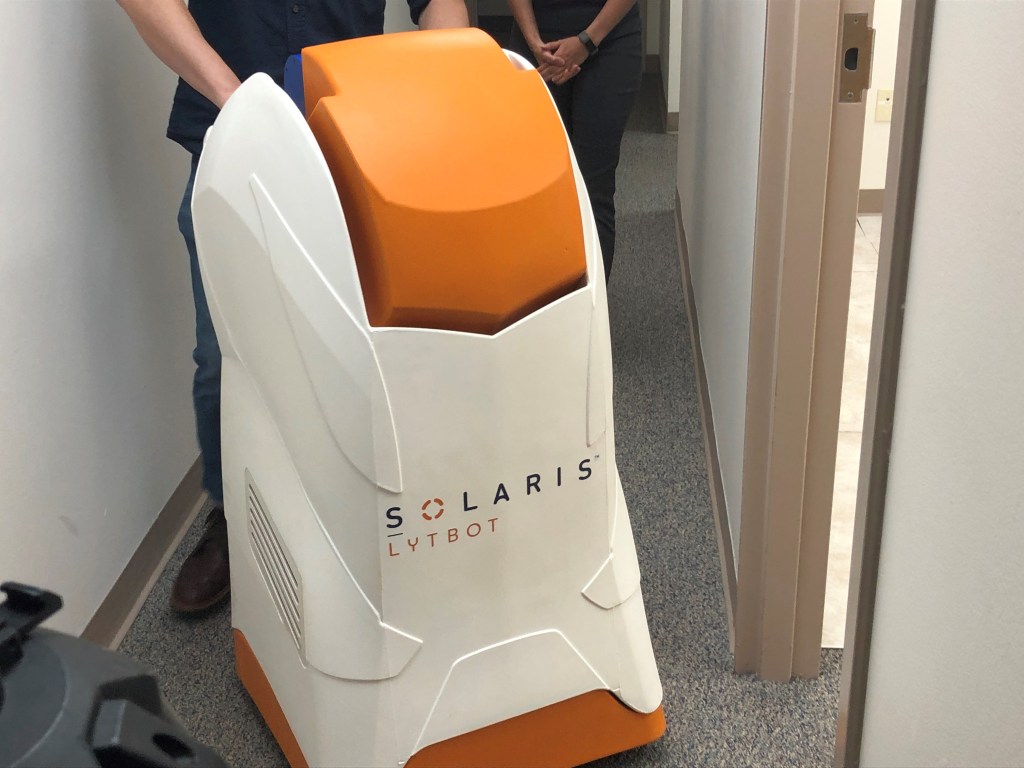
New York City's transit system has done more than just explore. One hundred fifty UV light devices are already cleaning subway cars and buses overnight, once passengers are no longer on board. It takes about 30 minutes for each one. They want it to be the best disinfecting technology riders will never see.
"The nice thing about light is it doesn’t miss. When you’re using soap and water or chemical spray, there’s always the chance for human error, you might miss one spot," said Webb Lawrence, co-founder of Puro, a company partnering on the New York pilot project.
Metro’s GM says he's been receiving requests to try various products with UV technology, but he's cautious.
"Our philosophy is that we want to pursue things that there's been some track record on," said Wiedefeld.
Kreitenberg says he's heard from other potential customers in the D.C. area and doesn't fault companies for taking their time.
Even Amazon is developing its own UV technology internally, for eventual use in warehouses and grocery stores.
"Because the truth is, we have one chance to reinstall this confidence in our guests and customers," said Kreitenberg. "So it's really important to get it right the first time."
Reported by Jodie Fleischer, produced by Patricia Fantis, and shot and edited by Steve Jones.

